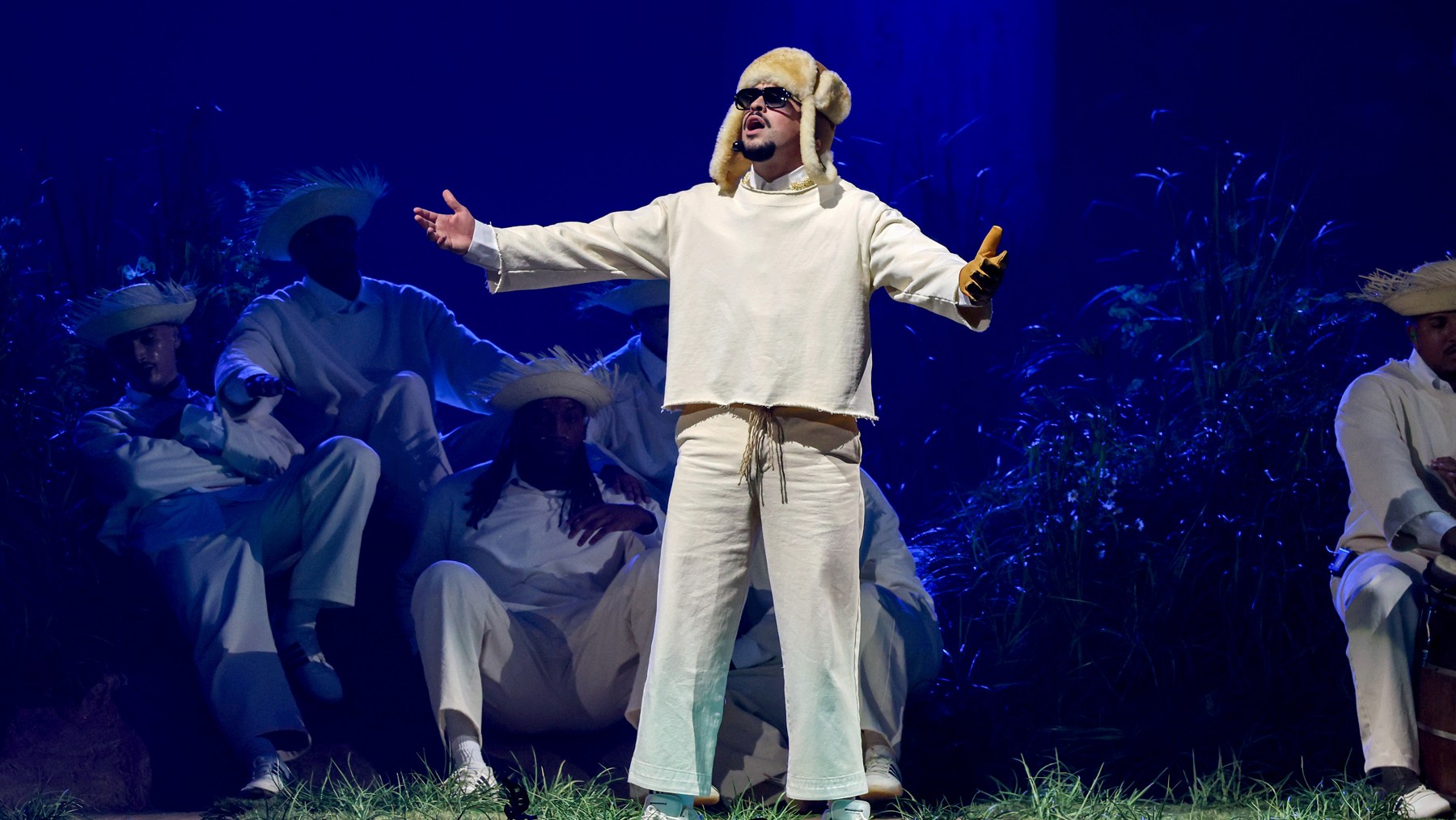The anticipation surrounding Bad Bunny's upcoming performance at the 2026 Super Bowl halftime show has sparked a whirlwind of reactions, from enthusiastic cheers to vehement criticism. The decision to have the Latin music superstar headline the event marks a pivotal moment in music history, as it will be the first time the Super Bowl halftime show is entirely in Spanish. This announcement comes on the heels of a series of triumphs for Bad Bunny, including a successful residency in Puerto Rico, record-breaking Amazon concert stream, and the massive success of his album Debí Tirar Más Fotos.
Despite his immense popularity and groundbreaking achievements, Bad Bunny has faced backlash from conservative critics who have lambasted his music, his politics, and even his use of the Spanish language. Known for his unapologetic authenticity, Bad Bunny has carved out a unique space in the music industry by challenging gender norms, addressing social issues in his lyrics, and advocating for the rights of marginalized communities such as immigrants. His refusal to conform to mainstream expectations has made him a target for those who view his artistry as a threat to traditional norms.
The backlash against Bad Bunny's Super Bowl performance is not an isolated incident but rather part of a longstanding trend of marginalizing Latin artists in the United States. Throughout history, Latin musicians have faced discrimination and prejudice, often being subjected to xenophobia and attempts to silence their voices. The parallels between Bad Bunny's reception and past incidents involving artists like José Feliciano and Ricky Martin highlight the recurring patterns of resistance to Latin representation in mainstream spaces.
The resistance to Latin artists performing in their native language is especially troubling given the rich cultural contributions of the Latinx community to the American music landscape. While some may view performances in Spanish as a challenge to the status quo, they represent a celebration of diversity and inclusivity in a multicultural society. The recent controversies surrounding artists like Nezza, who faced pushback for singing the national anthem in Spanish, underscore the ongoing battle for cultural acceptance and recognition.
In the current political climate, where anti-Latinx sentiment and anti-immigrant policies have become increasingly prevalent, Bad Bunny's Super Bowl performance takes on added significance. By choosing to showcase his music and heritage on a global stage, he not only asserts his artistic freedom but also asserts the diversity and resilience of Latino communities in the face of adversity. The act of performing in Spanish becomes a form of resistance against attempts to erase or delegitimize the cultural identities of marginalized groups.
As Bad Bunny prepares to take the stage at the Super Bowl, his performance will serve as a powerful statement of defiance and pride. Despite the challenges and prejudices he may face, he remains committed to expressing himself authentically and representing the millions of Latinos who call America home. In a climate of division and exclusion, his music transcends language barriers and speaks to the universal themes of identity, struggle, and resilience.
In a society that often seeks to silence dissenting voices and erase cultural diversity, Bad Bunny's presence at the Super Bowl halftime show is a testament to the enduring power of art and expression. As he prepares to make history with his performance, he stands as a symbol of resistance, unity, and the unwavering spirit of a community that refuses to be silenced. The stage is set for a momentous occasion that will not only entertain but also inspire audiences to embrace the beauty of diversity and celebrate the rich tapestry of voices that make up the American experience.

